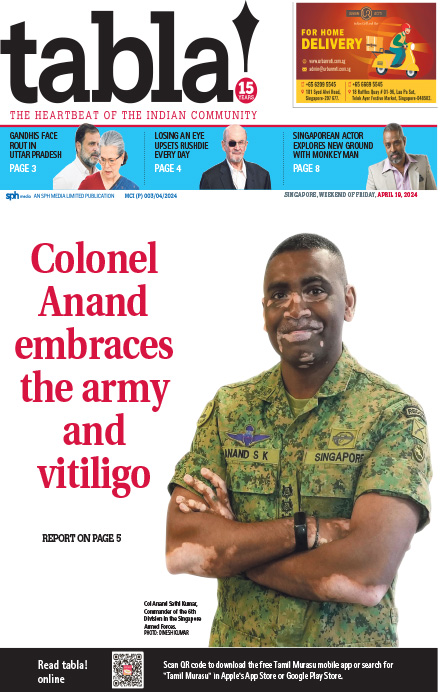AARTHI SIVARAJAN
Two applications created by students from NUS High School of Mathematics and Science (NUH High) and National Junior College (NJC) should make life easier for people with Down syndrome and hearing impairment.
Easy Board and EyeHear have been developed through the Tech for Good Innovation Challenge organised by Engineering Good, a non-profit organisation that empowers disadvantaged communities through humanitarian engineering, in partnership with The Asia Foundation and Google.org.
NUS High students Anirudh Eswara and Shriniket Subramanian, both 18, made an app called Easy Board that reduces stress for people with Down syndrome (which typically causes physical and mental developmental delays and disabilities) when they are travelling alone.
"Most people use apps like Google Maps and SG Buses to make their travel easier," said Anirudh. "But it is difficult for those with Down syndrome as they are able to travel only with the help of a caregiver.
"The aim of our app is to help them travel without relying on anyone."
The students identified three main problems that people with Down Syndrome face while travelling alone: Distraction, inability to comprehend more than three pieces of information at a time and tendency to panic.
Easy Board resolves these issues.
The app has a simplified user interface that displays clear and simple instructions and has audio narration, including names of bus stops, MRT stations and landmarks and the distance between two stops.
The students utilised Google Cloud to make the user interface seamless and work faster. They started trials of the app late last month.
The Tech for Good Innovation Challenge was also the platform for second-year NJC students Bharagth Ravindhran, Kabileshwaran Krishna Kumar, Deenadayalan Amirthaa and Sindhura Rajiv Jain to create an app called EyeHear - which benefits the hearing impaired. It converts speech to text (like subtitles in films) and allows hearing-impaired users to have less disruptive face-to-face conversations.
Created as a small clip-on panel on glasses, conversations will be picked up using the EyeHear app on the user's phone and the speech converted to text in real time on the screen of the glasses.
"There are plenty of technological innovations for those with disabilities in our community," said Amirthaa, 17. "But there are not many for people with hearing impairment. Since we already have sign language and hearing aids for these people, we decided to introduce something new."
Due to Covid-19 restrictions, the team has not been able to test the app, which took six months to develop with support from Google.org. It will be tested and mass produced once the situation gets better.
Said Ms Marija Ralic, Google.org lead for APAC: "With the support of mentors from Google and Engineering Good, we believe these youths will gain the right knowledge and skills to build helpful products that drive meaningful and long-term impact for the communities that need it the most."




